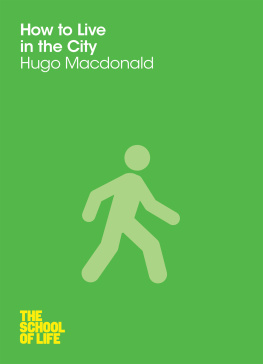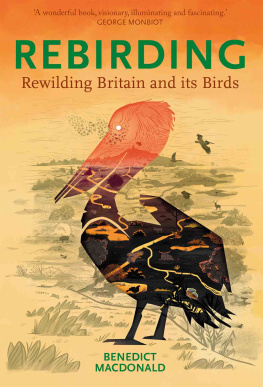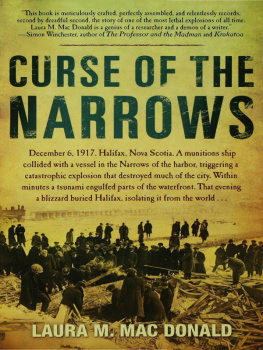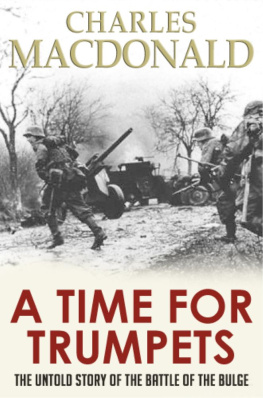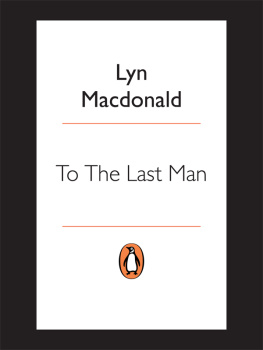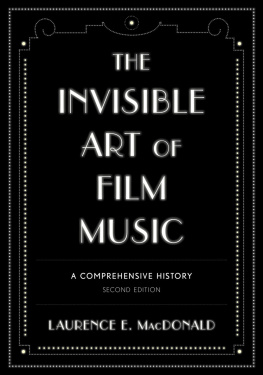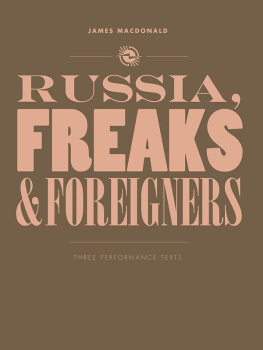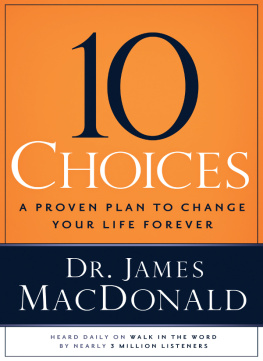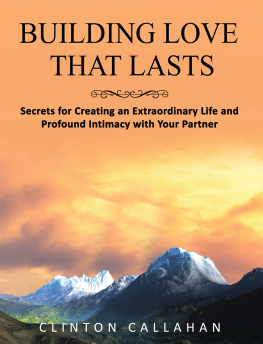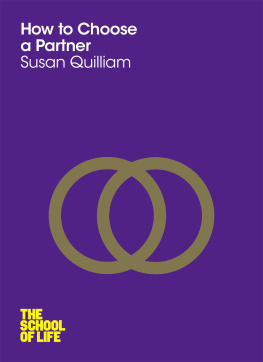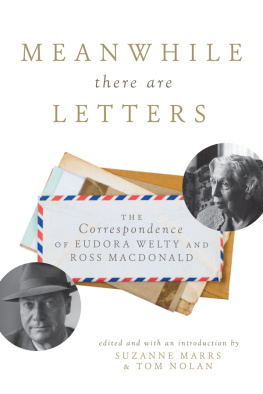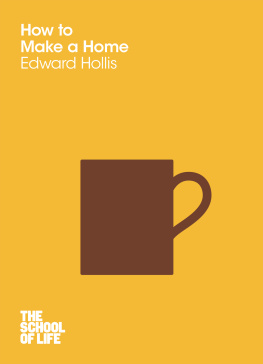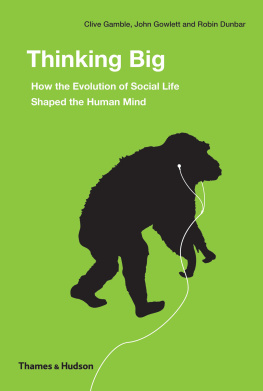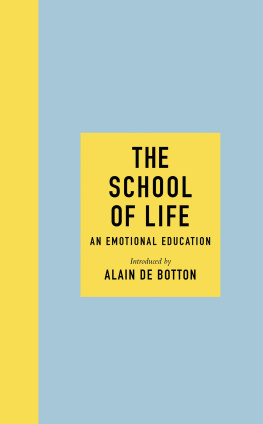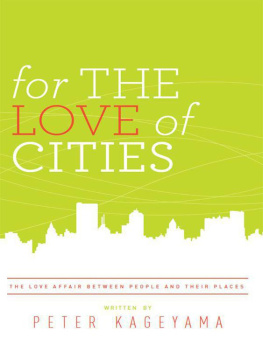H UGO M ACDONALD is a design, architecture and urbanism critic and consultant living in London. He studied Arabic and modern history at Cambridge University before moving to London. He was deputy editor of Wallpaper* magazines website and then design editor at Monocle magazine, where he hosted Monocle radios weekly design and architecture show, Section D. After a stint as the brand director at Studioilse, Ilse Crawfords design consultancy, today he has his own company. His writing has been published in titles including the Financial Times, the Guardian, Modern Design Review and the Journal of the London Society.

Can I see myself here?

Being human is itself difficult, and therefore all kinds of settlements have problems. Big cities have difficulties in abundance, because they have people in abundance.
(J ANE J ACOBS , T HE D EATH AND L IFE OF G REAT A MERICAN C ITIES )
Being Human, Not Feral
This is a book about being human in the city. As Jane Jacobs, one of the greatest urban writers and thinkers of modern times, puts it so beautifully, being human is itself difficult. Being human together in large numbers is extremely difficult. Being human in the city is a challenge. And that, presumably, is why you are holding this book. It is a book to help with the challenges we face living in the city. It is a book to help you feel human in an inhuman environment.
Living in a city changes our faculties. Just as it can heighten our sense of awe and joy, so too can it damage our senses, sensibility and sense of judgement. City living can make and break us in the same week, day or even hour. It can warp us to the point that we become something other than ourselves. Take an average daily commute in rush hour as proof that even the most civilized of humans can quickly descend into feral behaviour when locked in a crowd or pressed up close against an unfragrant armpit.
There is, of course, far more pleasure to be derived from life in the city than the odd horrible train journey. But as cities grow (and almost all cities are growing), systems, services and resources are continuously pushed to their limits, and the trials and tribulations of daily urban life are consequently increasing too. How can we ensure that the good doesnt get engulfed by the bad?
Against the backdrop of this swollen urban reality, theres an absence of handbooks for surviving, coping or nurturing our love for day-to-day living in cities. Tourist guidebooks, physical and virtual, are churned out at a rate of knots. But theres a distinct lack of books that tell us how to live in our own cities, how to cope with the rush and the crush, the grit and the grime. This is the mission of the book you are reading.
My love of city life is at odds with or perhaps more accurately, a reaction to my upbringing, which could not have been more rural. I grew up in a place called Sleat, on the Isle of Skye, off the north-west coast of Scotland. Our home was a small hotel run by my parents in a spectacular setting at the foot of a mountain, in front of a sea loch. It was down a forestry track, over a bridge a few kilometres from the single-track road that connected us to the nearest settlements on the island. Back then, Skye was still an island (the bridge connecting it to the mainland came in 1995). It was remote, and almost always rainy.
As a child my impressions of the city were gathered from snatches of news bulletins on TV, newspaper headlines and photographs together with stories and an odd collection of ephemera we had lying around. It was the 1980s. Cities were filled with police, riots and car bombs. We had a board game called Ratrace with the dubious tagline, the game the social climbers play. It was a boom-and-bust money game that brashly encouraged its players to buy their way through life with greasy ease. In my curious mind, London was dangerous, evil and full of rats climbing over each other to get ahead.
When I was seven we went to visit my aunt who lived down there, and the scales fell from my eyes. I was hooked. We didnt see any riots, and thankfully no car bombs either. That said, my sister was so anxious about the IRA she was sick into my aunts cutlery drawer (incidentally, she lives back in Skye today). But what we did see was a world unlike anything I had previously imagined. There were giant mechanical billboards that showed three adverts in succession; black taxis; black people; Indian people; Chinese people; strange pink Chinese food hanging in windows; policemen on horses; the BT Tower; haircuts like works of art; piercings and make-up on women and men. It was so big, messy, dirty, busy. All of it was new to me, and thrilling. The energy was an awakening, to say the least. I think of that first trip often. It helps in times when Im tired of the hassle of city life to remember how impressed I once was by the scale, the action and the pace. It helps me to pause, take a deep breath and let the awe inspire me all over again.
So Who Is this Book For?
The short answer is that this book is for anybody who lives in a city. A more considered answer would be that its for anybody who recognizes any of the following feelings or statements:
I feel awkward that I dont know anything about the life of the man who gives me coffee each morning.
Id love to see that exhibition/concert/play/film; I must make time for it. Another weekend gone and Ive got nothing to show for it but a hangover.
Dammit, I missed that exhibition. Am I the only person that didnt see it?
Why are people intent on standing still, in front of me, when Im in a hurry?
I dont see enough of my friends; why is it so difficult to arrange anything with them?
Why do I dread doing things or having any plans?
Hooray they cancelled on me, and now I have an evening to myself.
Is it normal to feel irrational anger towards so many strangers on a daily basis?
There is so much food on these shelves, and yet I cant find anything I want.
Im unhappy with my job/partner/friends/apartment, but I dont have the energy right now to find a new one. Where do you even start looking?
I want to be the person who is running at 9:30 a.m. on a Saturday; why am I still in bed? Again? And now its midday, and Im thirty-three, and still in bed.
I tell my friends and family I love this city because theres so much to do here. But if Im honest, I feel bad because I never do any of it.
Who was it that said if youre tired of London, youre tired of life? Maybe I should try New York. Maybe I should move to the seaside. And who said that only boring people feel bored? Does that mean Im boring, or tired of life? Or both? How could this happen when I live in London?

